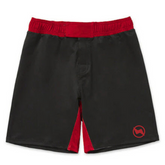BJJ Fouls and Penalties: Illegal Moves That Lead to Disqualification
Brazilian Jiu Jitsu (BJJ) is celebrated for its technical beauty. Moreover, its strategic depth and respect-driven culture make it popular among the practitioners. It does not matter whether you are practicing Gi or No-Gi BJJ. The art demands that competitors adhere to a strict set of rules designed to ensure safety, fairness and sportsmanship. Understanding BJJ fouls and penalties is crucial. It is not only important for those stepping onto the mats but also for fans, coaches and students aiming to master the sport. No matter whether you are rolling in a BJJ Gi or slicking through No-Gi grappling. But knowing what constitutes a foul, and what might lead to disqualification, can be the difference between victory and a costly loss.
In this complete guide, we will explore all aspects of illegal moves in BJJ. It will discuss what penalties these illegal moves carry. Moreover, you will learn how to stay compliant with tournament standards like IBJJF, ADCC, and other major organizations.
Why Are Rules So Strict in Brazilian Jiu Jitsu?
Brazilian Jiu Jitsu is not like many other martial arts, which involve close-quarters grappling where submissions can cause real physical damage if applied recklessly. The rules, especially in competitive formats (both Gi BJJ and No-Gi BJJ), are in place to:
- Protect athletes from severe injuries.
- Promote technical excellence over brute strength.
- Ensure fair play between competitors of different styles and body types.
- Preserve the spirit and sportsmanship inherent to BJJ.
Organizations like the International Brazilian Jiu-Jitsu Federation (IBJJF), Abu Dhabi Combat Club (ADCC), and others have detailed guidelines on what constitutes fouls and illegal techniques.
Categories of Fouls in BJJ
In Brazilian Jiu Jitsu, fouls are generally divided into:
- Technical fouls (illegal grips, stalling, etc.)
- Dangerous moves (actions that can cause injury)
- Unsportsmanlike behavior (disrespect, aggression, intentional fouls)
Penalties vary from warnings to immediate disqualification (DQ). These are based on the severity and the rule set under which the event is held.
Common BJJ Fouls That Lead to Penalties
Here is a breakdown of the most common BJJ fouls and their consequences:
1- Slamming to Escape Submissions
Illegal in IBJJF competitions, slamming your opponent to escape submissions like the armbar or triangle is a serious foul. It is deemed highly dangerous and results in immediate disqualification.
- You can lift an opponent — but bringing them down with control is essential. Slamming violently? Instant DQ.
2- Spine Locks Without Chokes
In BJJ Gi and No-Gi BJJ, techniques like the can opener i.e. forcing the opponent's neck to flex forward, without simultaneously applying a choke are illegal.
- Only authorized neck cranks, if they lead into a choke, are sometimes allowed under certain No-Gi rules (like in ADCC). IBJJF strictly bans them.
3- Heel Hooks (in Lower Belts)
Heel hooks — a devastating leg lock — are strictly forbidden in Gi divisions and lower belt No-Gi divisions under IBJJF rules.
- Only black belts (and now brown belts under updated IBJJF rules) can apply heel hooks in certain No-Gi competitions.
4- Knee Reaping
Knee reaping involves crossing your leg across an opponent’s body line. While controlling their foot and putting immense pressure on the knee joint.
- In IBJJF Gi BJJ and No-Gi BJJ divisions (below brown and black belt No-Gi), this is an automatic DQ.
- In advanced No-Gi tournaments like ADCC, reaping is often permitted.
5- Grabbing Inside the Opponent’s Gi
In BJJ Gi competitions, you may grip sleeves, lapels and pants. But grabbing inside the cuffs or pant legs (internally) is illegal.
- Stick to external grips!
6- Finger Grabbing (Four Fingers Inside Sleeve/Pants)
Hooking four fingers inside the Gi sleeve or pant leg is forbidden. It can give an unfair advantage and result in penalties.
- Use proper Gi grips like pistol grips, collar grips or pant grips without inserting your fingers illegally.
7- Small Joint Manipulation
Twisting or pulling fingers and toes individually is illegal in both Gi and No-Gi BJJ. Only manipulation of 3+ fingers/toes together is allowed.
- Think bigger: wrist locks = yes (depending on division), finger locks = no.
8- Eye Gouging, Hair Pulling, Biting, or Fish Hooking
These are obvious violations in Brazilian Jiu Jitsu and immediately result in disqualification.
- Maintain professionalism and respect at all times.
9- Striking
In sport BJJ, striking (punches, elbows, headbutts, or slaps) is illegal. Save your ground-and-pound for MMA — not the BJJ mats.
- Gentle "shoulder pressure" to open guards is allowed — not fists.
10- Using the Belt or Uniform to Tie Opponent
You cannot use your belt or Gi to tie your opponent in a way that restricts their movement unfairly.
- Grip the Gi smartly, but no tying tricks!
11- Unsportsmanlike Conduct
Trash-talking, ignoring the referee’s instructions, celebrating excessively, or disrespecting the opponent can all lead to penalties or disqualification.
- Win with humility, lose with grace.
Specific Illegal Moves by Belt Level
Some moves are considered legal only at advanced levels. Here is a rough guide:
| Technique | White Belt | Blue Belt | Purple Belt | Brown Belt | Black Belt |
|---|---|---|---|---|---|
| Heel Hooks | Illegal | Illegal | Illegal | Legal (No-Gi) | Legal (No-Gi) |
| Toe Holds | Illegal | Legal | Legal | Legal | Legal |
| Knee Bars | Illegal | Legal | Legal | Legal | Legal |
| Straight Ankle Locks | Legal | Legal | Legal | Legal | Legal |
| Slam to Escape Submissions | Illegal | Illegal | Illegal | Illegal | Illegal |
| Spine Locks (No choke) | Illegal | Illegal | Illegal | Illegal | Illegal |
Penalty Progression in BJJ
Different tournaments use slightly different penalty structures, but commonly:
- Warning: First offense, especially for minor fouls.
- Point Deduction: For repeated or serious fouls.
- Disqualification: Immediate DQ for serious fouls (like slamming, illegal submissions, striking).
Stalling (deliberately avoiding action) often results in cumulative penalties. This can eventually lead to disqualification after repeated offenses.
How to Avoid Fouls and Succeed in BJJ Competitions
- Know the Rules: Study the competition ruleset thoroughly (IBJJF, ADCC, UAEJJF, etc.).
- Train Smart: Practice competition-legal moves during sparring.
- Stay Calm: Emotions can lead to fouls — control your mind as much as your body.
- Respect Your Opponent: BJJ is about mutual growth; fight hard but fair.
Conclusion
Brazilian Jiu Jitsu is as much about discipline and respect as it is about technical dominance. It does not matter whether you are competing in a crisp BJJ Gi or battling in high-speed No-Gi BJJ. Understanding and respecting the rules will make you a better martial artist and a better human being.
Master the legal techniques, avoid common fouls and roll with honor. The mats are a place for growth, not shortcuts. If you aspire to climb the ranks in BJJ, knowing the fouls and penalties inside out is just as crucial as perfecting your armbar or guard pass.
Train hard, roll smart, and always respect the art of Brazilian Jiu Jitsu!





